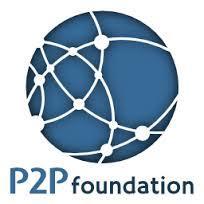“People centered” means that control of infrastructure, access, distribution, resources, and co-governance are now on the scale of the individual person. When an individual person with this empowerment reaches their individual carrying capacity to operate, they will tend to reach out to others who are operating like them, and a connection-based network will emerge. Economic development here targets individuals operating as self-employed independents who network together. Independents, small businesses, community groups, working together, with government, higher education, and larger business are the new economic driver. The more control people have an on individual scale of infrastructure, access, distribution, resources, and governance, *and* the more connectivity there is between those people, the that more growth happens in “people centered economic development”.
When control of infrastructure, access, distribution, resources, and co-governance are now on the scale of the individual person, a new way of coopertive co-managing of existing resources, and surpluses of production tends to emerge. That new way of co-managing is known as “Resource Sharing”."



 Your new post is loading...
Your new post is loading...








